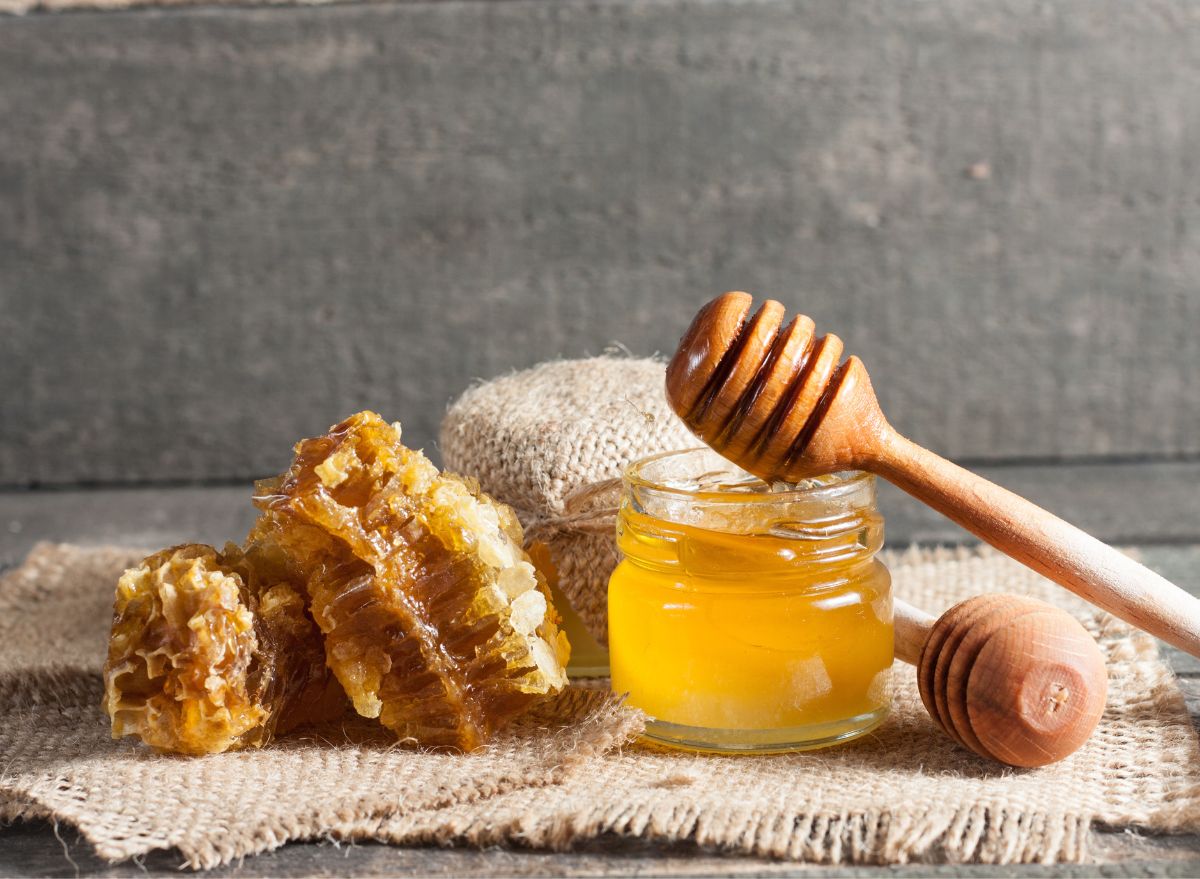Sweet! Honey May Improve Blood Sugar & Cholesterol Levels, New Research Finds

Honey can make everything tastier. From chicken and fish, to bread and desserts, and even on its own if you simply want a spoonful of the sweet treat. Now, new research has found that honey may also improve blood sugar and cholesterol levels, although some types may be better than others.
Honey is considered a "free sugar," which is essentially any type of sugar that can be added to a food or beverage, and it's oftentimes assumed to be one of the healthier free sugars out there.
Researchers from the University of Toronto, whose findings were recently published in Nutrition Reviews, set out determine what effect honey might have on cardiometabolic risk factors. Read on to learn more about the study, and for more healthy eating tips, make sure to check out 11 Dietitian-Approved Pantry Foods You Should Keep On Hand.
What the research says about honey and cardiometabolic health

Responsible for a systematic review and meta-analysis, the researchers focused on 18 controlled trials that involved more than 1,100 participants and lasted for a median length of two months.
The results showed that honey had a positive effect on cardiometabolic health, such as blood sugar and cholesterol levels. While participants generally consumed around two tablespoons of honey each day, it was noted that raw honey and honey from a single flower were the cause of many of the health-related benefits. On the other hand, processed honey wasn't as effective when it came to benefiting the body.
"These results are surprising, because honey is about 80% sugar," said Tauseef Khan, a senior researcher on the study and a research associate in nutritional sciences at the University of Toronto's Temerty Faculty of Medicine, according to EurekAlert! Khan added, "But honey is also a complex composition of common and rare sugars, proteins, organic acids, and other bioactive compounds that very likely have health benefits."
"Honey is very rich in antioxidants for cardiometabolic health," Catherine Gervacio, registered dietitian and Living Fit contributor, tells Eat This, Not That! When it comes to why honey might help blood sugar and cholesterol levels, Gervacio adds "It contains flavonoids and phenolic compounds. Flavonoids are anti-inflammatory antioxidants that have the ability to prevent blood clots, and phenolic compounds reduce the risk of heart disease, as it is known to protect cells from oxidative stress."
Which type of honey is best
Gervacio also explains why honey that's raw and from a single floral source is more ideal than other types. "Raw honey has not been subjected to processing methods, so it retains more nutrients and antioxidants than those that are processed."
"As for the specific source of honey, there is no substantial study on which floral source has the best composition for cardiometabolic health, but eating honey in its most natural state is still the best option," Gervacio says.
If you're curious about how much honey you might need to eat in order to see the benefits, Gervacio says, "A tablespoon or two of raw honey is sufficient to get the nutrients you need. Honey is actually considered a medicinal food and is used in ancient times. Not only does it have cardiometabolic health benefits, but it also has anti-microbial properties for wound healing and even relief from an itchy cough."








